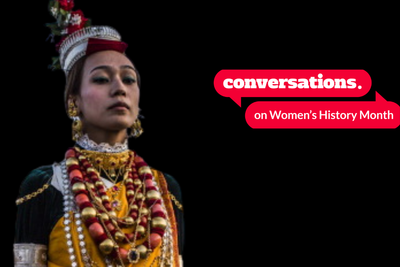The matriarchal societies around the world that embrace the power of womanhood
A few days ago, I was scrolling through YouTube videos in the spirit of women's history month and all of the empowering and amazing things that women have and continue to do. As a result, I stumbled across VICE Life's mini-documentary titled "The Land Of No Men: Inside Kenya's Women-Only Village."
I was instantly intrigued by the documentary, which chronicled women who found refuge, inspiration, and community amongst each other on the quest for independence.
When I finished watching the segment, my eagerness to find out if any other societies around the world are matriarchal was in full momentum. And the findings were exquisitely powerful and humbling.
Below are some matriarchal societies around the world that embrace the power of womanhood.
Umoja
For over 500 years, the Samburu people in northern Kenya have maintained a strictly patriarchal society.
That all changed in 1990 when Rebecca Lolosoli, a Samburu woman, founded the Umoja village. The village, which is essentially a no man's land ( men are permitted to visit but aren't allowed to live there), serves as a haven for women and girls who no longer wanted to suffer from abuses such as forced marriages to men that may be older than them, genital mutilation, and violence against them for going against the grain.
When finding out the word Umoja, which means unity in "Swahili," it made me think of the lengths women embark on to become a united force which is a beautiful thing.
Mosuo
For over 2,000 years, the Mosuo people, one of the 56 recognized ethnic groups in China, have lived in the Sichuan and Yunnan provinces.
One Mosuo woman is elected as the head matriarch of a household, that is usually made up of several families. The Women within the households carry on the family name. Additionally, the head matriarchs of each village govern the region by committee. We love to see women in governance!
However, another unique and interesting cultural tradition of the Mosuo people is zouhun, or "walking marriages."
After a coming-of-age ceremony in adolescence, the Mosuo females have the right to choose their lovers and the free will to have as many lovers as they want throughout their lives.
In these "marriages," the men visit the woman's home by invitation and stay the night in a designated flower room. The men then leave at daybreak to return to their own home as couples don't live together.
If babies are produced, they are reared exclusively in the woman's family, with her brothers and uncles playing the fatherly role.
There are reportedly 56,000 Mosuo people in China's general population of 1.3 billion.
BriBri
The BriBri people are an indigenous group of people that live in the Talamanca region in the Limón province of Costa Rica. Known as " hidden people," they are isolated from the rest of the country deep in the rainforest and are considered the largest indigenous population in Costa Rica.
The women are the only ones to traditionally inherit land and prepare the sacred cacao drink used for religious purposes in this society. Men can only be an "awa"(shaman) in these spiritual practices.
Furthermore, a smaller population lives in Bocas del Toro, Panama.
Khasi
In Meghalaya, northeast India, the Khasi people are an indigenous tribe known for their matriarchal society. The women work outside while men are supposed to stay inside and tend to the house duties. When it comes to children, only mothers and mothers-in-law are allowed to look after the children. Men aren't even supposed to come to family gatherings.
Similar to the Mosuo, when a Khasi woman gets married, she keeps her last name instead of changing it to her husband's.
The Khasi are also located in the bordering state of Assam and certain areas in Bangladesh.
Have you got something to say about this subject? Submit a post here and start the conversation.
